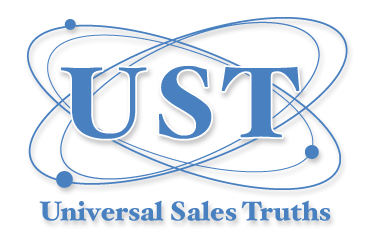After graduating from St. John’s University in 1976 with a B.S. in business and a major in marketing, I had an interview for a sales job with Burroughs Corporation. My original intention was to find a job in marketing. However, at the time there were no entry-level jobs available, so I decided to start my professional career in sales, and then hopefully move on to marketing.
The interview was with the branch manager, a man named Phil. He was very personable, was in his early 40s, and had a distinct passion for the company he represented. Even though this was one of my first job interviews following graduation, I did feel reasonably comfortable and confident as we sat down to start the interview. Since I had no professional work experience, the questions were certainly limited.
He asked me what I learned as a business major in college that would prepare me as a sales rep with Burroughs. He asked about outside activities during college as well as jobs I had while attending St. John’s. He also asked about my short- and long- term goals. Knowing that to be successful in sales requires a strong work ethic, people skills and a competitive spirit, I focused on two areas that I thought would resonate with Phil.
I discussed the fact that I was a four-year competitor on the varsity rifle team. I told him that we traveled and competed at the highest level of competition in the nation, and after my freshman year I was awarded a full athletic scholarship. Then I joked about having my first sales job while attending college. You see, I was a vendor at Shea Stadium. I sold beer on a commission-only basis at Mets and Jets games. Although running around the upper deck of the stadium yelling “Hey beer!” at the top of my lungs does not really qualify as professional sales experience, it did show that I had initiative and a strong work ethic. It also provided an interesting topic of conversation for us. The interview was going very well, and then it happened. He dropped the bomb of a question on me, one that I had not anticipated. He leaned over, handed his pen to me, and said, “Sell me this pen.”
Phil stopped talking, and there was dead silence. I started to feel very uncomfortable. It felt like my face was turning red, and a feeling of panic actually set in. I felt like if I didn’t do a good job of selling the pen, then the rest of the interview didn’t matter. So I started my sales pitch. I described all the benefits of the pen: how reliable it was, how good it felt in your hand, how the design and shape were very attractive, how it would provide good use for a long time, and how it drew a very sharp and neat line. And on and on and on I went, thinking of every possible attribute of the pen. I basically had diarrhea of the mouth, if you get my drift. St. John’s did not teach me how to sell, and I had no real sales experience, so I was at a total loss attempting to sell this pen.
As I reflect on that day back in 1976, I wish I had a second chance to “sell the pen” to Phil. You see, it is really a trick question, in my opinion. How can you effectively sell anything to anyone without first understanding their needs? What would Phil value in a pen?
- Longevity?
- Style?
- Sharp point?
- Color?
- Price?
- Feel?
- Elegance?
You get my point. Without asking Phil probing questions in advance of launching into my sales pitch, how could I expect to know what he values in a pen? The answer clearly is that you can’t. The only effective way is to map the value of your product to what your prospect values. Then, and only then, can you present a compelling case to purchase your product. When you think about it, it really is a very simple and basic sales truth.
Ask probing questions before you launch into your presentation.
UNIVERSAL SALES TRUTH #3
Do more listening than talking.
Proverbs 18:13
Answering before listening
is both stupid and rude
